Executive Summary
This is the fourth report in our series on European startup capitals. Here, we profile examples of retail- and fashion-focused Amsterdam startups, including Fashiolista, a website that enables users to create a profile where they can save and share fashion items and outfit ideas, and Syndy, a platform that gives suppliers more control over digital product content on retailers’ online transactional sites.
Retail technology is the focus of two Amsterdam-based accelerators, Rockstart Web & Mobile Accelerator and Startupbootcamp E-Commerce. Rockstart aims to support startups that apply new technologies in sharing-economy concepts such as marketplaces. Startupbootcamp provides support to startups that promise to innovate in e-commerce.
Amsterdam is one of the largest startup hubs in Europe by total investment; in 2015, investors poured €1.67 billion (US$1.85 billion) into new companies based in the city. Amsterdam was the third-fastest-growing startup hub in Europe after London and Berlin and the fifth-fastest-growing hub globally in 2015, according to Compass, a San Francisco-based online-analytics company. The city features a multicultural population and a business-friendly environment, along with easy access to mentoring for startups.
This report examines how Amsterdam compares with other startup clusters in Europe and across the globe. We consider two rankings: Compass’s 2015 Global Startup Ecosystem Ranking, in which Amsterdam ranks 19th, and the European Digital City Index 2016—produced by UK innovation and investment charityNesta—in which it ranked third. Amsterdam performs well on the following indicators:
- Access to capital: Amsterdam-based tech startups have ample access to early-stage funding, crowdfunding and business angel funding.
- Mentoring and entrepreneurial culture: Amsterdam ranks high in Europe in terms of the number of networking and mentoring events it hosts and in terms of access to accelerators.
- Market reach: The international orientation of Amsterdam-based startups facilitates their overseas reach.
One factor that drags on Amsterdam’s competitiveness as a startup hub is the relatively low value of early-stage funding for startups based in the city: seed round funding for Amsterdam-based startups is 21% lower than the European average and 88% lower than the Silicon Valley average.
Introduction
Amsterdam is a leading startup hub globally and one of the top European cities for startup development. Young companies in Amsterdam benefit from a multicultural population and a business-friendly environment as well as from easy access to mentors.
This report provides an overview of Amsterdam as a startup ecosystem and examines how the city compares with other startup clusters in Europe and across the globe. It is the fourth report in our series on European startup capitals. Our previous reports focused on
London,
Berlin and
Paris.
We divide the report into two sections:
- The Amsterdam Startup Ecosystem: This section reviews the city’s key startups and accelerators, with a focus on retail-related companies.
- The Context: In this section, we consider two rankings: Compass’s 2015 Global Startup Ecosystem Ranking and Nesta’s European Digital City Index 2016.
1. The Amsterdam Startup Ecosystem
In this section, we discuss a number of fashion- and retail-focused Amsterdam startups, profile two retail technology–related accelerators, and provide a rundown of other notable accelerators and incubators in the city.
Amsterdam-based Fashion and Retail Startups
 Fashiolista
Fashiolista is a platform that enables users to create a profile where they can save and share photos of fashion items and outfit ideas. Users can follow other users, including fashion bloggers and designers, for inspiration on new fashion ideas. The company was founded in 2010 and has grown to 1.3 million members in more than 160 countries. Fashiolista had raised €359,400 (US$500,000) in funding as of January 2011 (latest), according to Crunchbase.

Source: Fashiolista.com
 AliveShoes
AliveShoes is a platform that enables people and companies to design, buy and sell shoes. Users can create their own shoe designs, choosing from more than 70 styles, 30 colors and a number of materials. The shoes are manufactured in Italy following the specifications outlined by the user. The company was founded in 2011 and had raised €768,060 (US$1.02 million) in funding as of June 2013 (latest), according to Crunchbase.
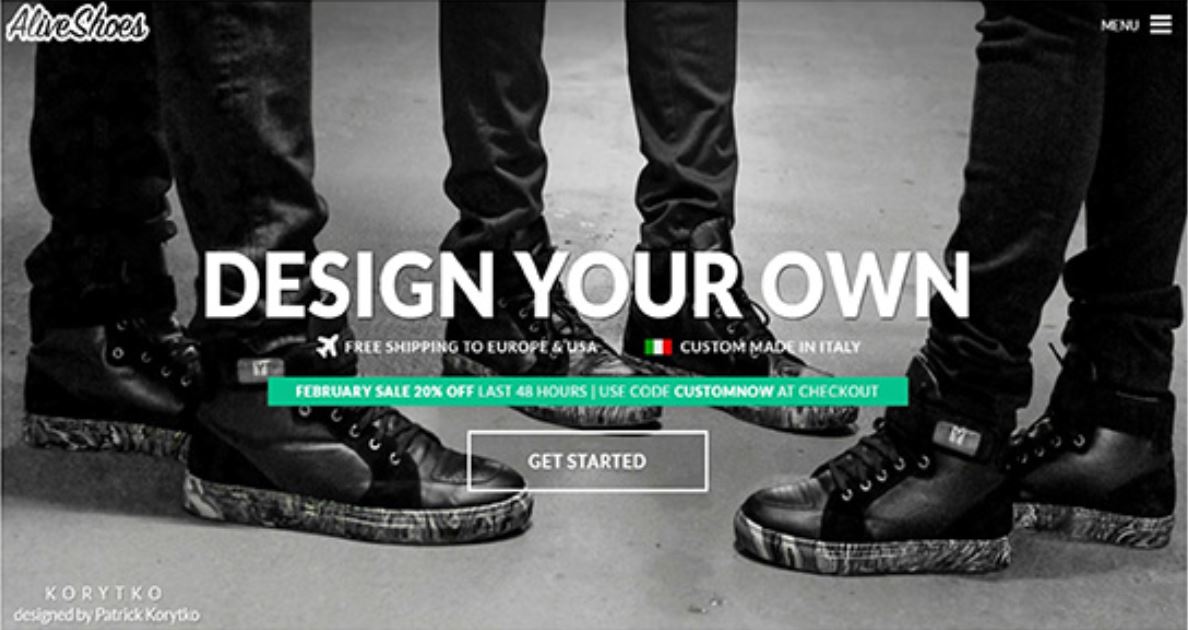
Source: AliveShoes.com
 CrowdyHouse
CrowdyHouse is a marketplace through which designers can sell their collections directly to consumers. The company was founded in 2013 and had raised €1.15 million (US$1.27 million) in funding as of April 2015 (latest), according to Crunchbase.
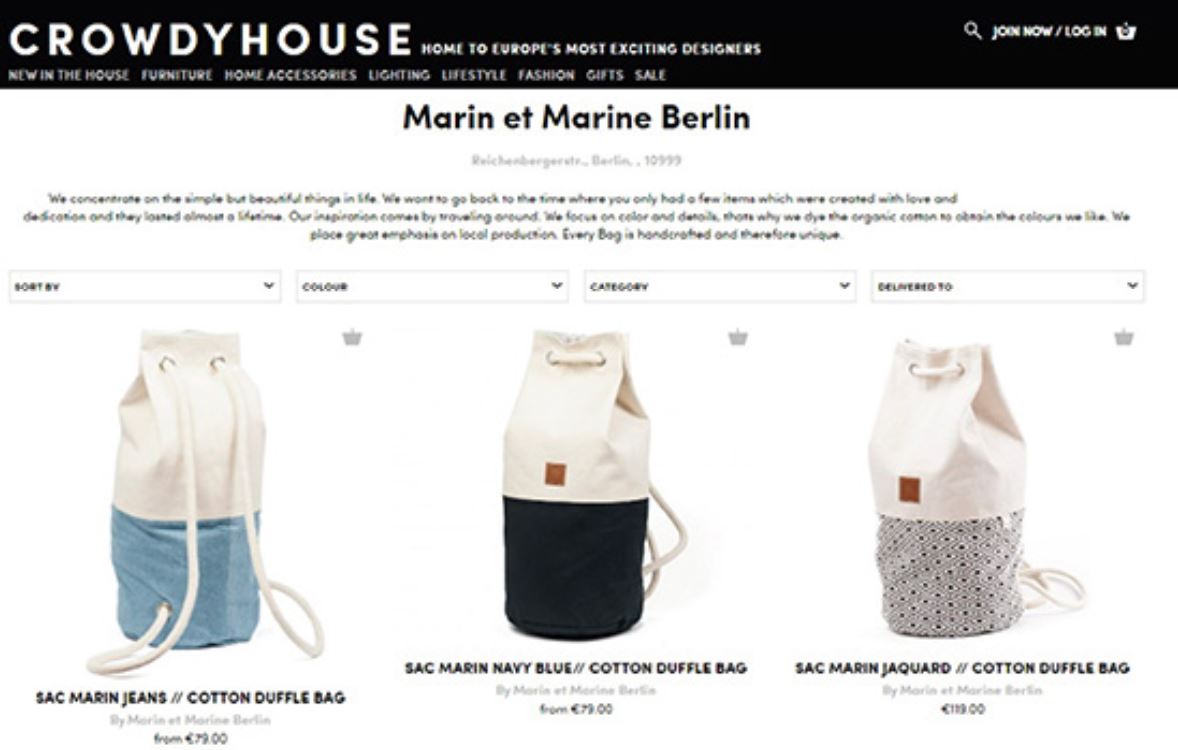
Source: CrowdyHouse.com
 Cirqle
Cirqle is a platform that enables fashion companies to market their brands to new consumers through influencers on social media. The platform includes more than 8,000 influencers and reaches more than 325 million people each month, delivering billions of impressions across Twitter, Tumblr, Instagram, Facebook, YouTube and Google Analytics. The company was founded in 2014.
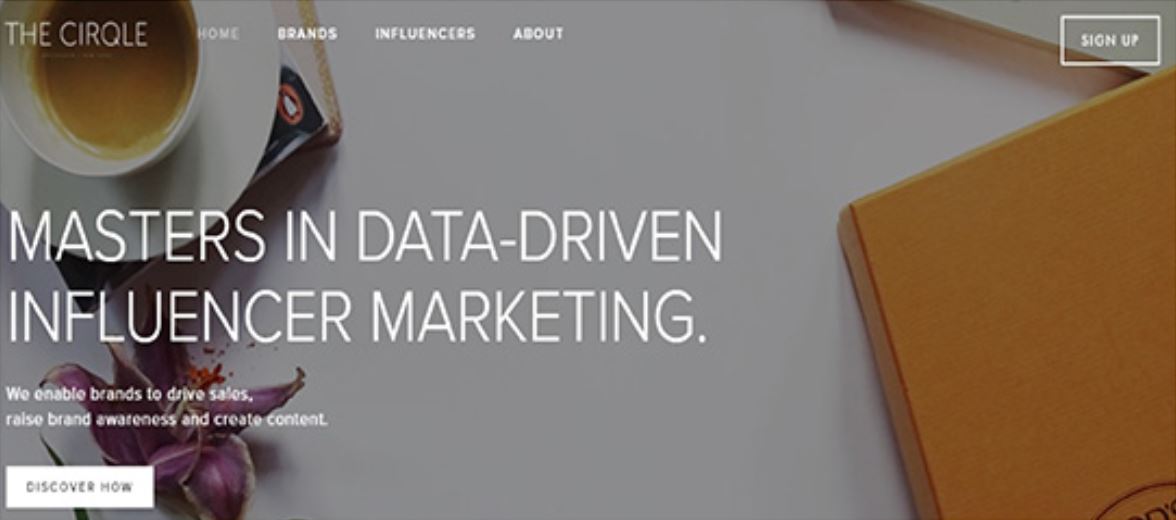
Source: TheCirqle.com
 Syndy
Syndy is a platform that gives suppliers more control over their digital product content on retailers’ transactional websites. Suppliers can send customized product content to a retailer, update the content in realtime and communicate directly with the retailer. The company was founded in 2010 and had raised €1.1 million (US$1.5 million) in funding as of December 2014 (latest), according to Crunchbase.
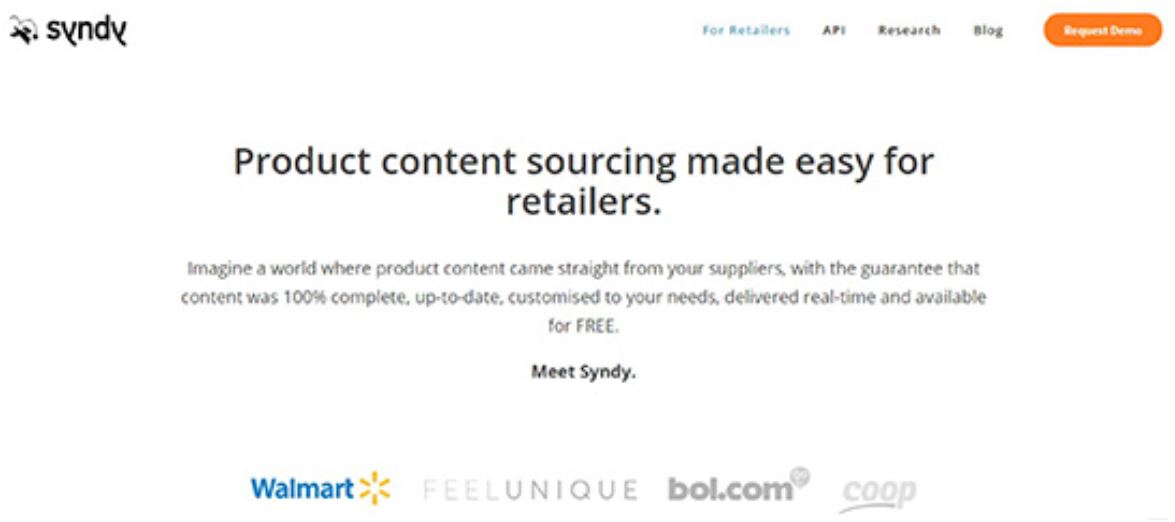
Source: Syndy.com

123dressme is a wardrobe organizer and online retail app that gives users a complete overview of their wardrobe and helps them decide what to wear.123dressme also suggests new items that can be purchased directly from the app. The company was founded in 2011.
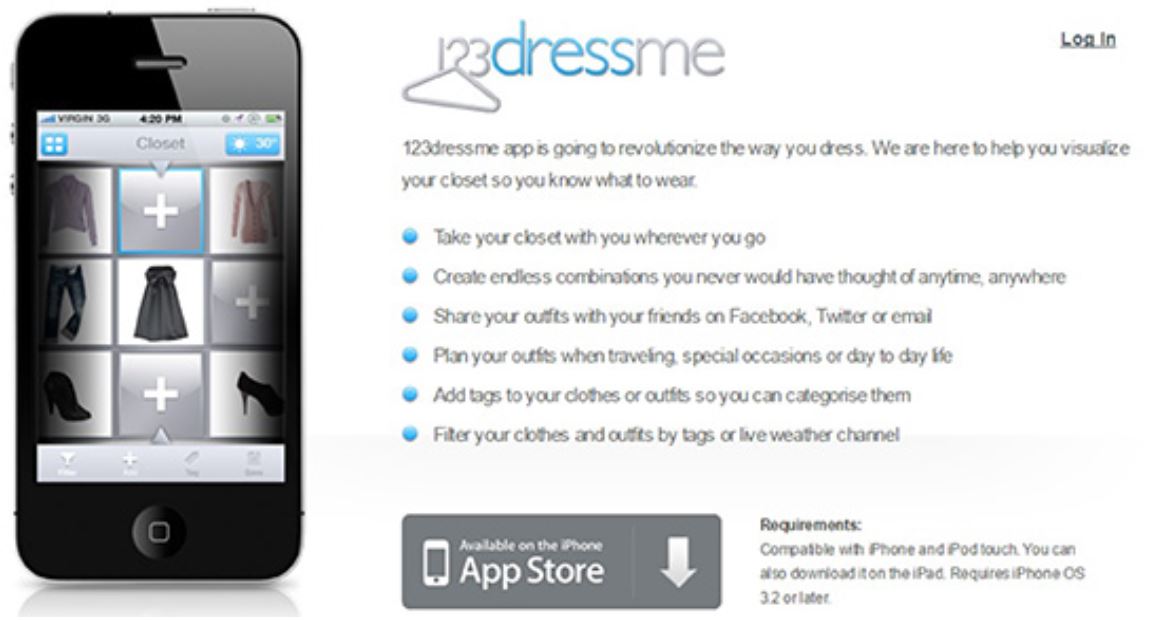
Source: 123dressme.com
 Monolith
Monolith is a software service that enables retailers to visualize and analyze data collected from sensors installed in stores. The tool combines the store data with customer behavior and economic data to deliver insights. Monolith is used by retailers to improve management of staff and in-store stock, analyze visitor traffic, and better assess the impact of promotional campaigns, staff performance and other initiatives.
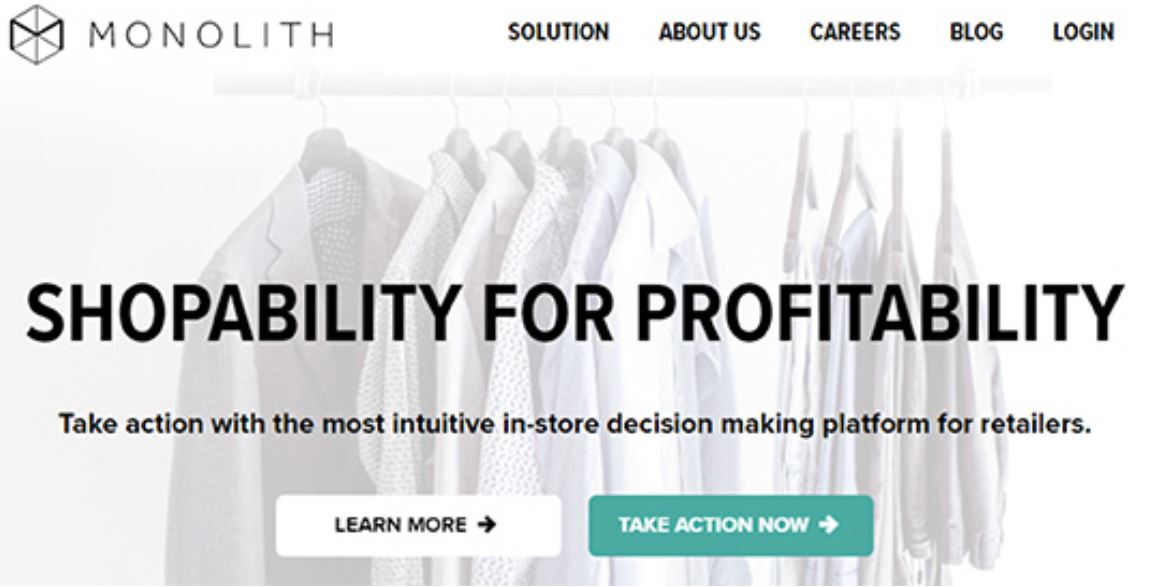
Source: Monolith.co
 12Return
12Return is a returns-management software service that enables retailers to better communicate with customers returning an item, keep them informed about the process and track the returns in the reverse supply chain. The company was founded in 2010 and had raised €582,878 (US$619,490) in funding as of January 2017 (latest), according to Crunchbase.
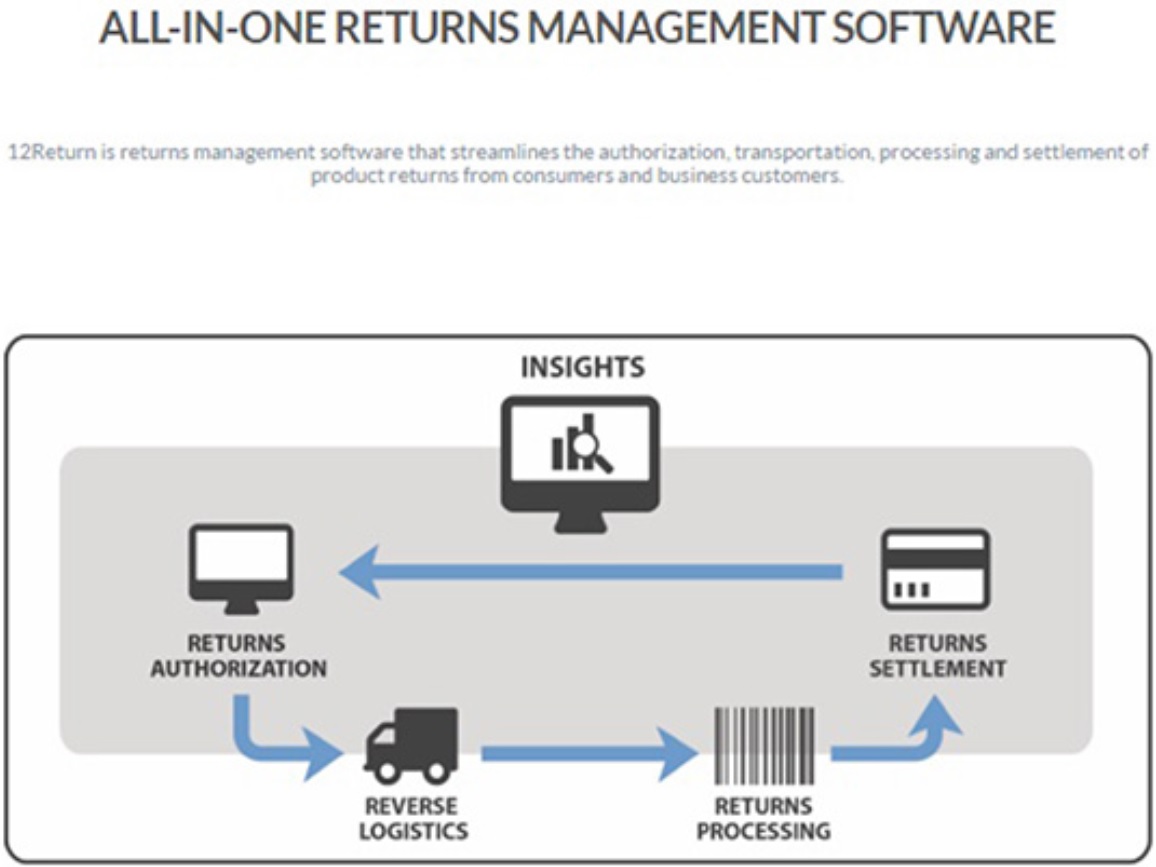
Source: 12Return.com
 Roamler
Roamler is an analytics platform that provides insights to brand managers on how their brands appear to customers in a retail environment. The insights are gathered by apps installed in smartphones used by “Roamlers,” who are consumers who act as mystery shoppers. Roamlers browse stores and gather information on a particular brand’s pricing, promotions, merchandise displays and product availability. The company was founded in 2011 and had raised €6.5 million (US$7.2 million) in funding as of April 2016 (latest), according to Crunchbase.
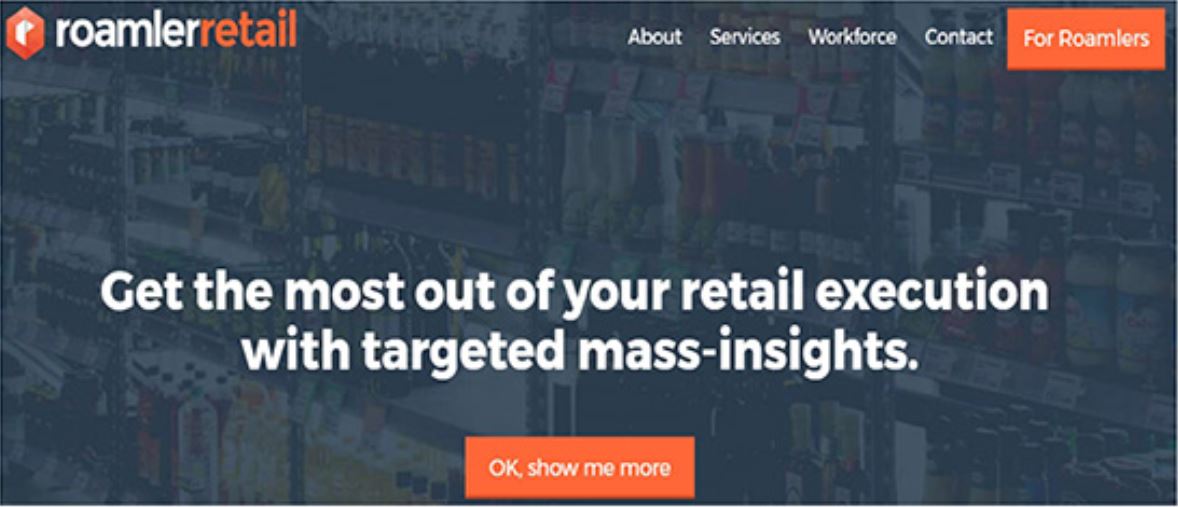
Source: Roamler.com
 Lokalinc
Lokalinc is a marketplace that enables users to browse for selected gifts that are available from local stores in Amsterdam, Rotterdam and Den Haag. The company was founded in 2014 and had raised €270,510 (US$300,000) in funding as of December 2015 (latest), according to Crunchbase.
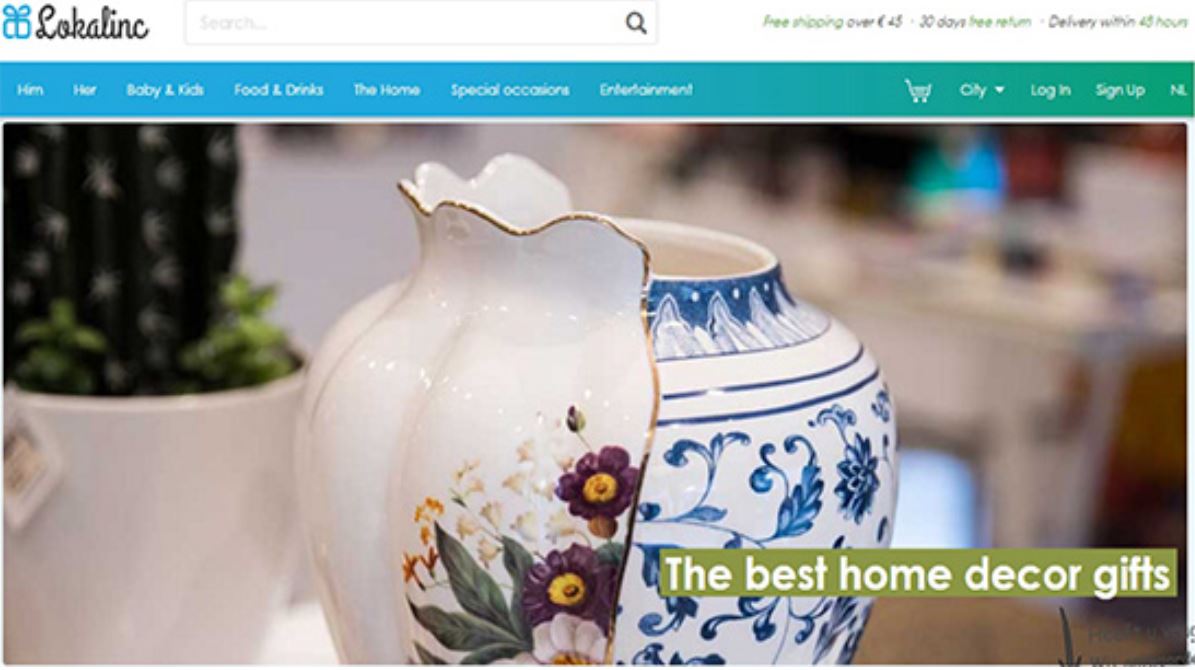
Source: Lokalinc.com
 Spaaza
Spaaza is an analytics platform that helps retailers enhance their marketing programs by creating a unified profile of each customer. The software collects data about the customer journey across channels, including online, offline and social media. The company was founded in 2011.
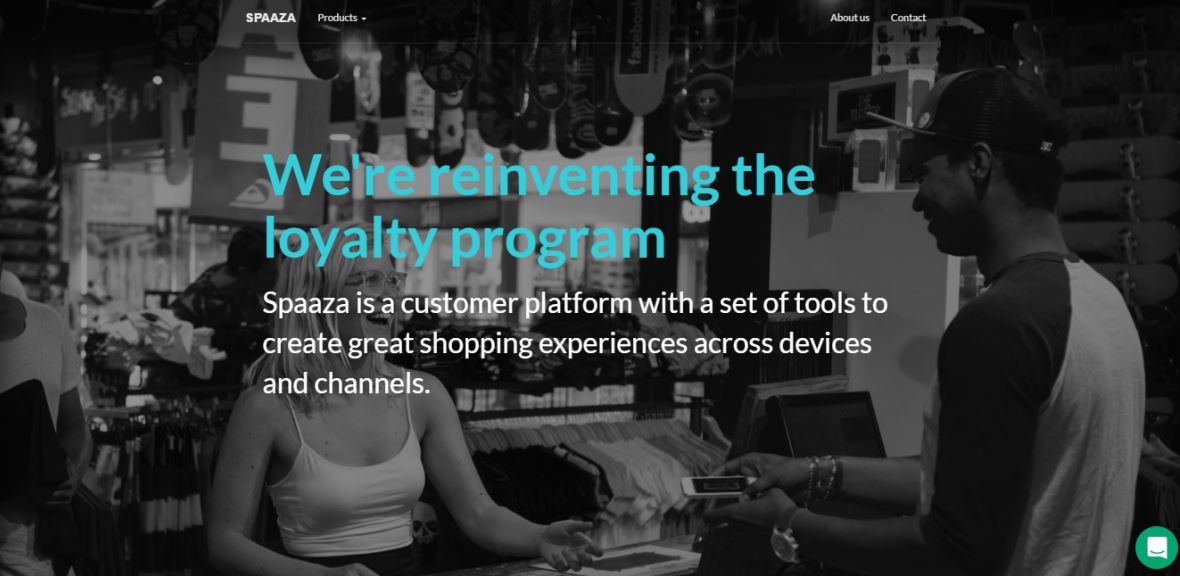
Source: Spaaza.com
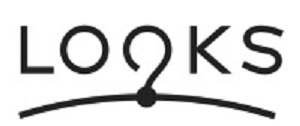 Looks
Looks is an app that helps users make informed purchasing decisions by getting advice from real people.T he app functions as a retail marketplace and a style advisor: shoppers can ask for style suggestions from a personal style advisor and get the suggested look by purchasing the items directly through the app. The company was founded in 2015 and received an undisclosed round of seed funding in September 2015, according to Crunchbase.

Source: Getlooksapp.com
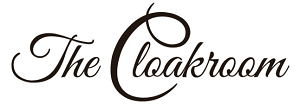 The Cloakroom
The Cloakroom is a platform through which men can shop for apparel online with the help of a style advisor. New customers answer a style quiz to inform their consultation with the stylist. The items selected by the stylist are sent to the customer to try on. If the customer is satisfied with the items, he can proceed to purchase them. If not, he can return them free of charge. The company was founded in 2013 and had raised €2.9 million (US$3.8 million) in funding as of May 2014 (latest), according to Crunchbase. In 2016, the company was acquired by Modomoto, a German company with a similar business model.
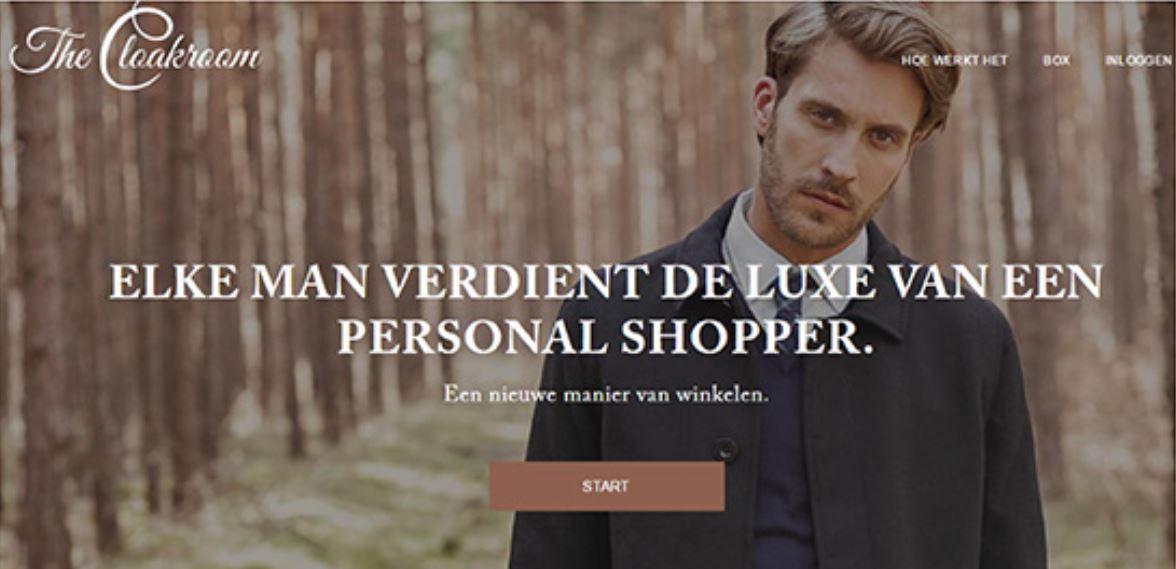
Source: TheCloakroom.nl
Accelerators and Incubators in Amsterdam
Amsterdam is home to a number of accelerators and incubators. These organizations offer different types of support to startups through various programs, which we describe in more depth in our report
Accelerators & Incubators in London.
Rockstart Web & Mobile Accelerator and Startup bootcamp E-Commerce are two examples of retail technology-focused organizations in Amsterdam that help startups grow.
 Rockstart Web & Mobile Accelerator
Rockstart Web & Mobile Accelerator
Rockstart is a startup accelerator and workspace that offers support programs to new companies that focus on smart energy, web and mobile, and digital health. The programs last for 150 to 180 days, and each includes10 startups, which benefit from the support of more than 300 mentors. A total of 88 startups have graduated from the programs and have raised a total of €43 million (US$45.5 million) in funding.
The web and mobile program was the first program launched by Rockstart and has run since 2012. The program aims to support startups that apply new technologies such as artificial intelligence (AI), blockchain and sensors in areas that include online marketplaces, 3D printing and modelling in manufacturing, logistics and transportation. Syndy, profiled above, graduated from the program.
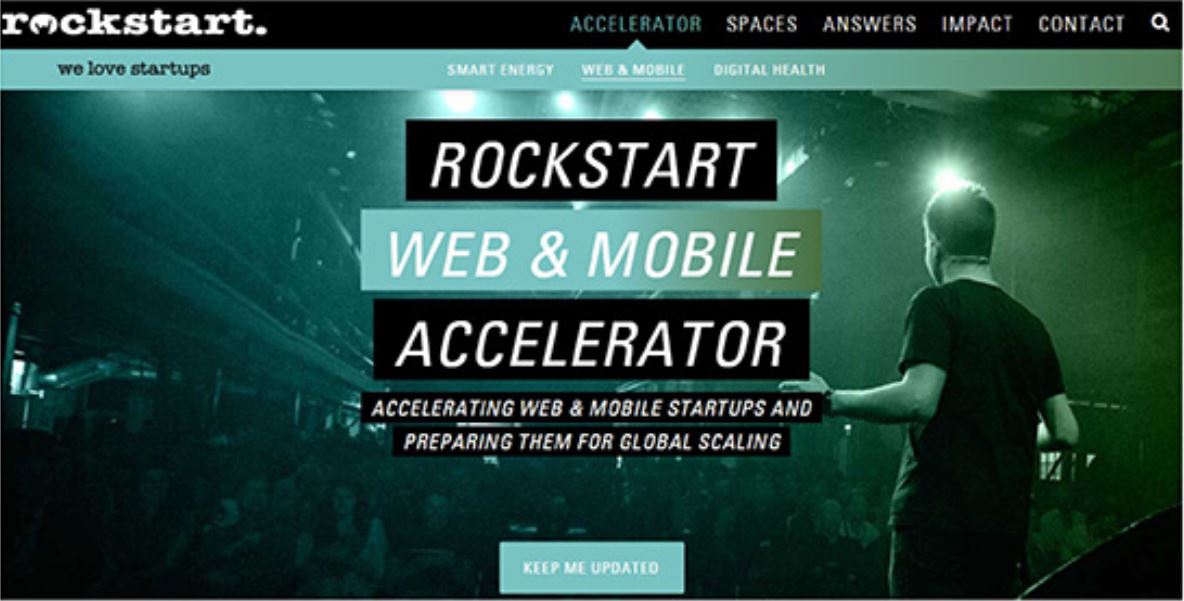
Source: Rockstart.com
The Rockstart web and mobile program offers startups:
- Funding: €15,000 (US$15,875) in investment for an equity stake of 8% per startup.
- Mentorship: Access to more than 80 mentors.
- Personal and team development: Access to a range of training programs.
- Global community: Access to Rockstart’s global network of accelerators in 18 cities across the globe.
- Office space: Use of the workspace in central Amsterdam.
- Investor network: Access to more than 200 local and international investors, including Greylock Partners, Balderton Capital, Notion Capital, Tola Capital, Portugal Ventures, 2bpartner and Vitulum Ventures.
- Alumni program: Support after the program ends includes fundraising advice, public relations and marketing support, and legal and administrative services.
The current program, which started on December 1, 2016, is closed to new entrants.
 Startupbootcamp E-Commerce
Startupbootcamp E-Commerce
Startupbootcamp is one of the largest startup support organizations in the world. In Amsterdam, the organization runs three accelerators to support new companies focusing on solutions for smart cities and smart living, fintech and cybersecurity, and e-commerce.
Startupbootcamp E-Commerce provides support to startups that promise to innovate in e-commerce. Participating companies focus on authentication, virtual reality, marketing, omnichannel, e-commerce, contactless interaction, security, payment methods, logistics, social shopping and artificial intelligence.
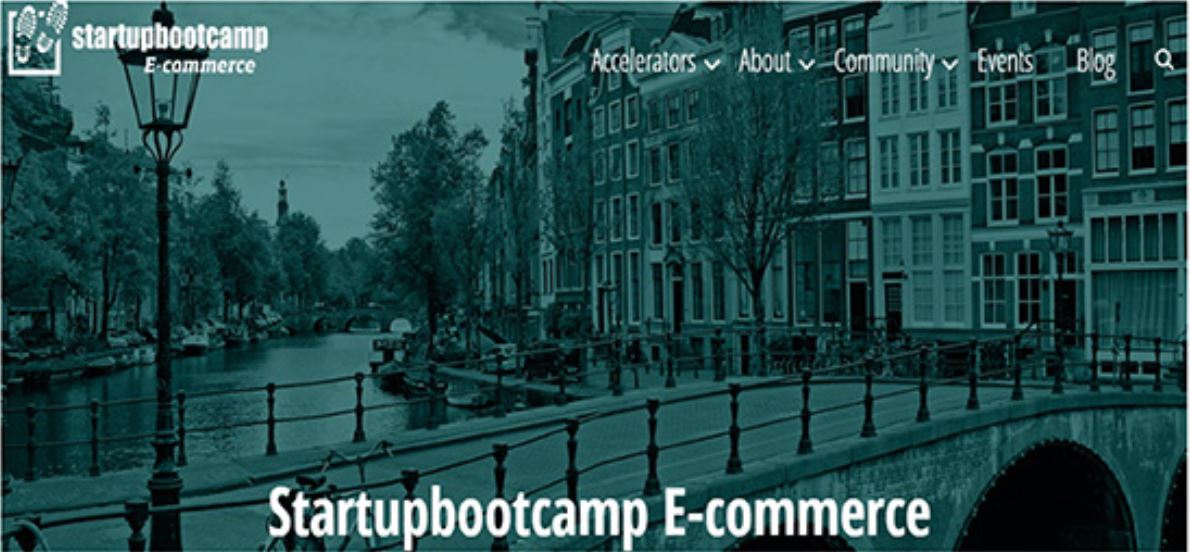
Source: Startupbootcamp.org
Startupbootcamp’s intensive,three-month program accepts 10 startups, which collaborate with more than 150 mentors, partners and investors to develop their business. Partners supporting the program include Achmea, Aegon, Ahold Delhaize, Athlon, Clifford Chance, ING, InContext Solutions, International Card Services (ICS), Marktplaats, PwC, Rabobank, Unica and Wereldhave.
At the end of each program, the participating startups pitch their ideas in front of investors during a Demo Day. Applications will be accepted beginning April 8, 2017, for the next program, which will start October 10, 2017.
For an 8% equity ownership, the program offers support to each startup in the form of access to a network of corporate partners, investors and more than 1,000 mentors from the e-commerce industry; €15,000 (US$15,875) to cover living expenses during the program; and a working space in the heart of Amsterdam.
Other Amsterdam-based Accelerators and Incubators
Amsterdam is also home to a number of other organizations that support startups in various sectors, as shown below.
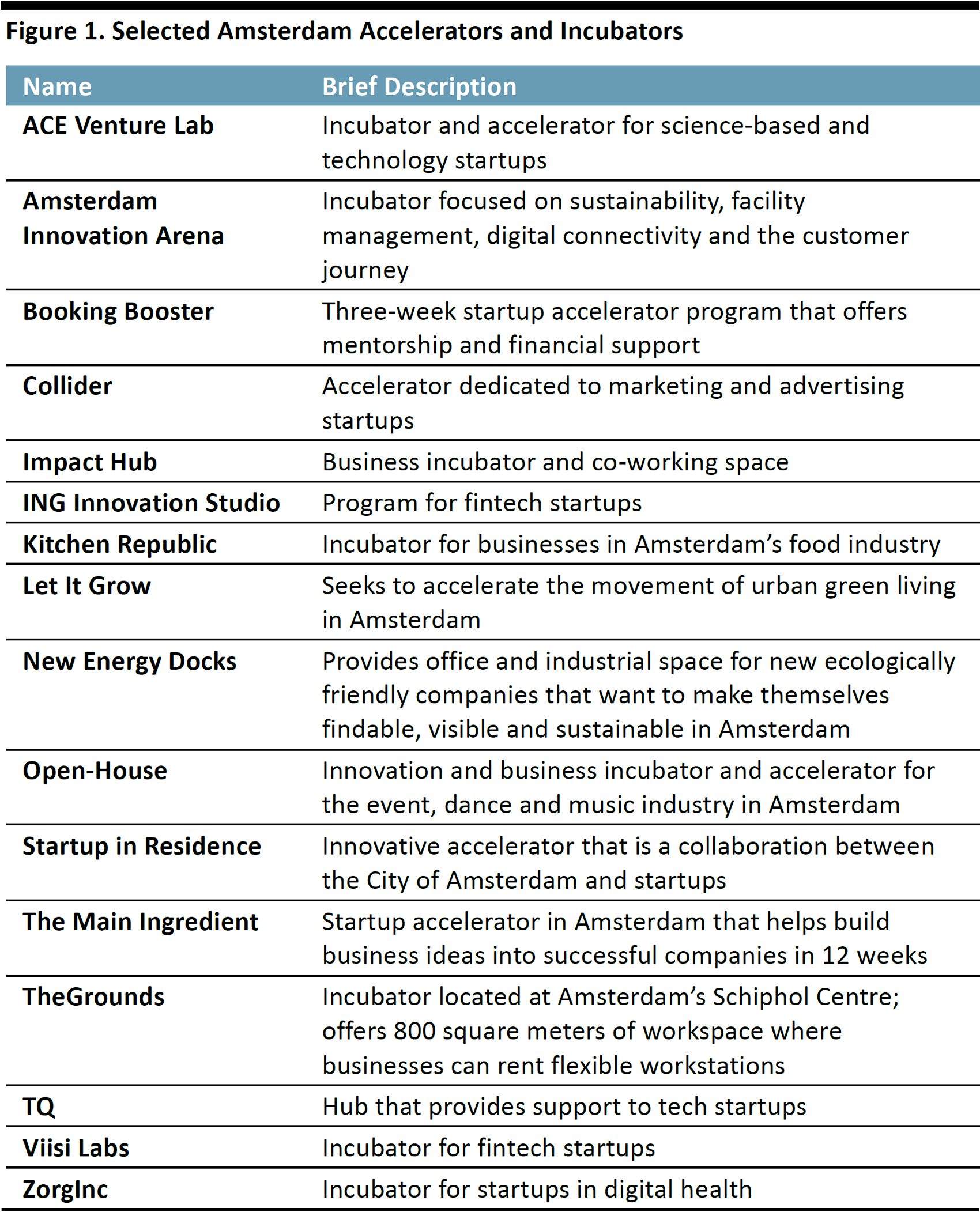
Source: Iamsterdam.com
2. The Context
In this section, we consider the environment for startups, accelerators and incubators in Amsterdam.
Amsterdam: A Top European Startup Hub
Amsterdam ranks among the top startup hubs in Europe. The city features a multicultural population and a business-friendly environment, along with easy access to mentors.
According to Startup Hubs Europe, Amsterdam’s startups benefited from €1.67 billion (US$1.77 billion) in investments in 2015, one of the highest totals worldwide. That figure is a far cry from total investment in startups in London, the leading European startup hub, which saw €12 billion (US$12.7 billion) in investment in 2015. But Amsterdam compares well with other leading continental hubs, such as Berlin (€3.91 billion/US$4.14 billion in 2015) and Paris (€3.74 billion/US$3.96 billion in 2015).

Source: Startup Hubs Europe
Amsterdam has attracted large international tech firms such as Uber, Netflix and Tesla, all of which chose the city as their base for European expansion. This was largely due to the Netherlands’ favorable tax regime, but also due to the fact that English is widely spoken by the domestic workforce (Amsterdam ranked first on the EF English Proficiency for Companies list in 2016).
Also contributing to the city’s attractiveness are its proximity to the largest EU markets and its world-class transport hubs, such as Schiphol Airport. According to Airports Council International, Schiphol ranked second in 2016 after FrankfurtAirport among all European airports in terms of hub connectivity (the total number of connections offered through an airport).
The city’s local government supports the development of a favorable environment for startups through initiatives such as StartupAmsterdam, a public/private program in partnership with companies, universities, and accelerators and incubators. StartupAmsterdam’s efforts include organizing funding events such as Amsterdam Capital Week, training opportunities such as B. Startup School Amsterdam and startup bootcamps, and events such as Launchpad Meetups and Startup City Alliance Europe to encourage collaborations among new companies.
According to Compass, Amsterdam was the third-fastest-growing startup hub in Europe, after London and Berlin, and the fifth-fastest-growing hub globally in 2015.
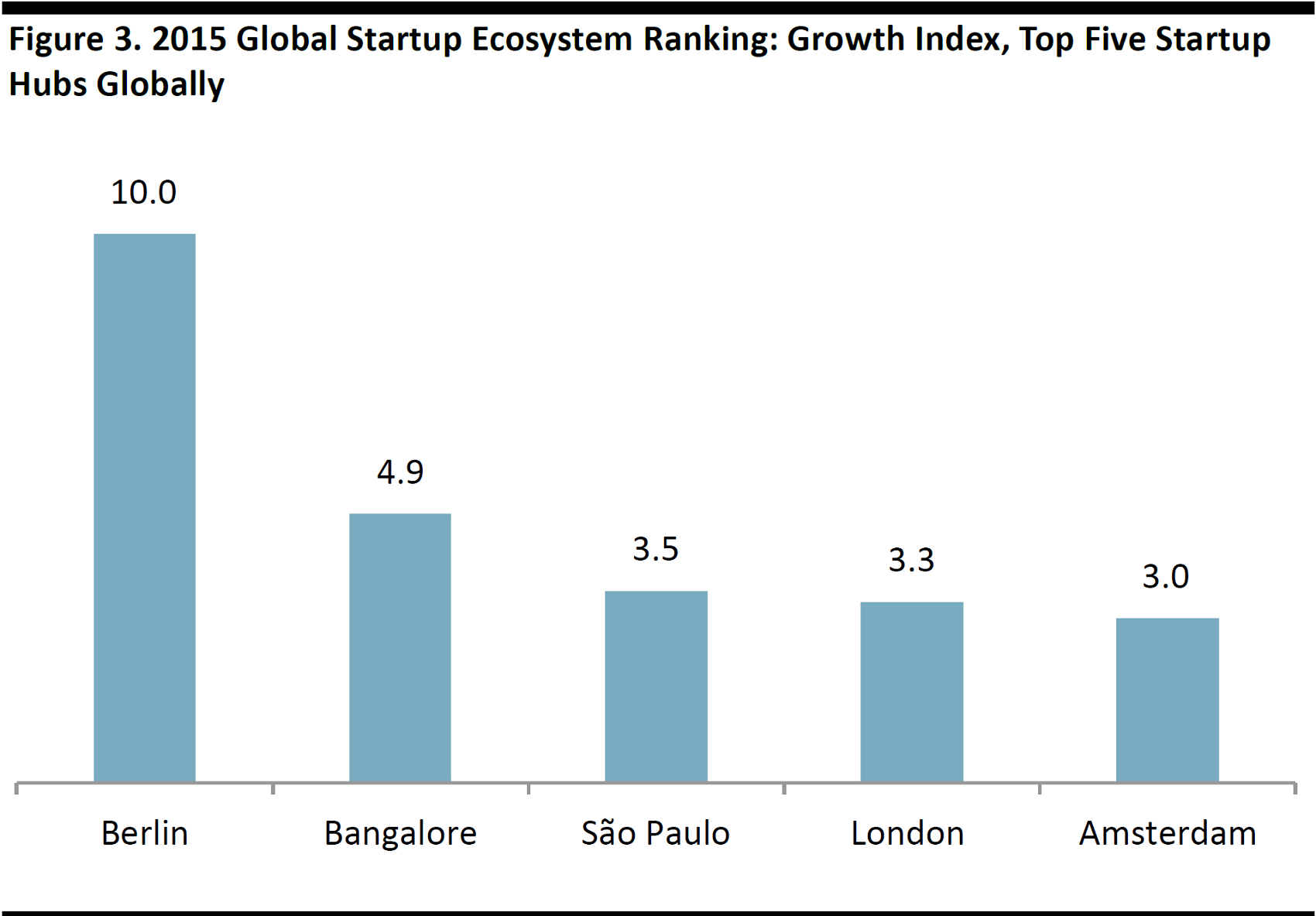
The Growth Index is calculated based on annual growth in the number of startups, growth in venture capital investment and the two-year moving average growth of the annual sum of exit valuation; the average scores across these indicators are then converted into a 10-point index.
Source: Compass
How Amsterdam Compares with Other Startup Hubs
In order to better understand which characteristics make Amsterdam one of the top global startup ecosystems, we considered two indexes—one global and one regional—which rank startup hubs according to specific indicators: Compass’s 2015 Global Startup Ecosystem Ranking and Nesta’s European Digital City Index 2016.
Amsterdam Ranks 19th in the 2015 Global Startup Ecosystem Ranking
Amsterdam is the 19th-best ecosystem for startups globally, according to the 2015 Global Startup Ecosystem Ranking. The overall index ranks startup hubs on five criteria:
- Performance of the funding invested in the startups
- Venture capital funding and the time it takes to raise capital
- Talent availability
- Market reach
- Startup experience, such as mentorship by veteran startup founders
The ranking is based on insights collated from different sources, including surveys and interviews with startups and entrepreneurs. The index does not cover China, South Korea or Japan. In terms of specific indicators, Amsterdam performs well in market reach, but lags other hubs in average value of seed round funding.
Market reach: Startups in Amsterdam tend to be internationally focused, given the small size of the domestic market in which they operate. Amsterdam-based startups usually offer their products and services in at least two languages and about 50% of their clients are international.
Funding: Amsterdam ranks poorly in terms of the average value of seed round funding for startups, 21% lower than the European average and 88% lower than the Silicon Valley average. However, the city outperforms the European average in Series A rounds and in rounds with only local investors.
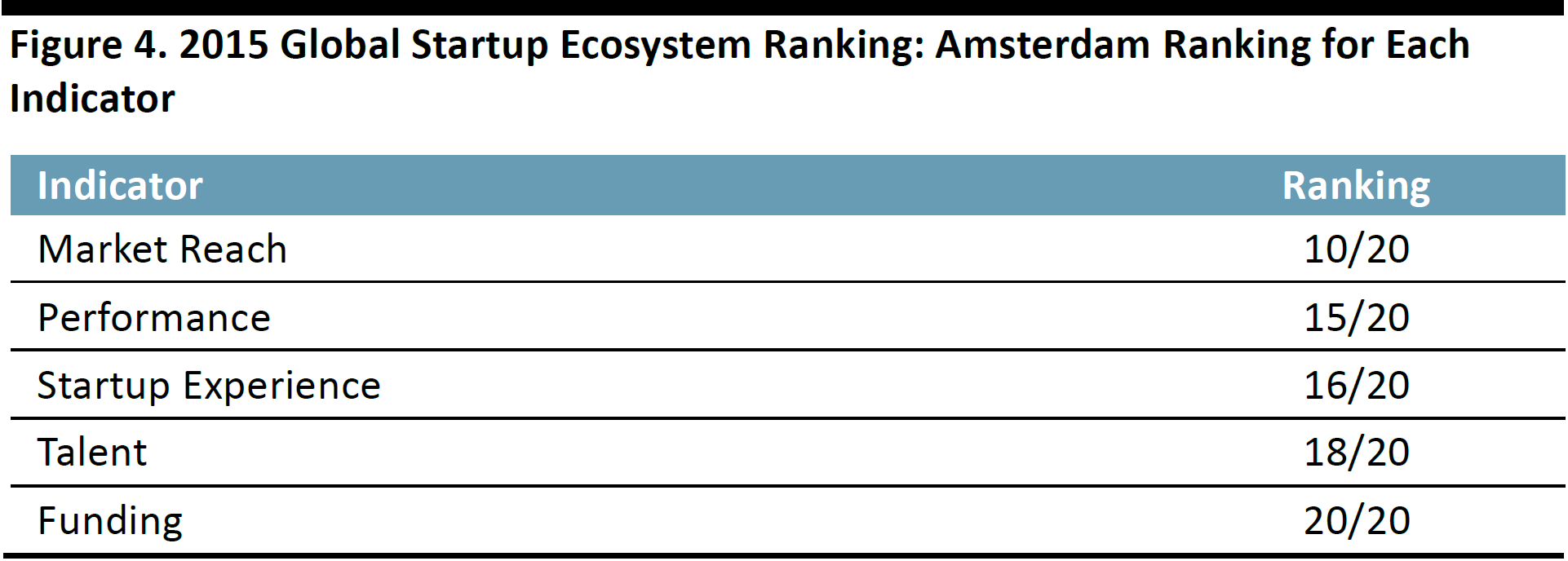
Ranking is out of 20, with 1/20 the best result and 20/20 the worst result.
Source: Compass
Amsterdam Ranks Third in the European Digital City Index 2016
The European Digital City Index 2016, compiled by UK innovation and investment charity Nesta, ranks 60 European cities based on how well they support digital entrepreneurs. The rankings are based on indicators such as availability of financing and skilled workers, and quality of supporting infrastructure and networks. In 2016, Amsterdam ranked third in the index.
Access to capital: The city ranks first in terms of availability of early-stage funding, crowdfunding and business angel funding. However, as noted above, Amsterdam underperforms in terms of average value of seed round funding.
Mentoring and entrepreneurial culture: Amsterdam ranks high among European cities in terms of networking and mentoring events and access to accelerators (ahead of Berlin and London). Another upside of the city is its well-developed entrepreneurial culture. Amsterdam ranks high in variables such as willingness to take on risk, multicultural diversity, new business density, absence of negative perception of entrepreneurship and history of highly successful digital companies.
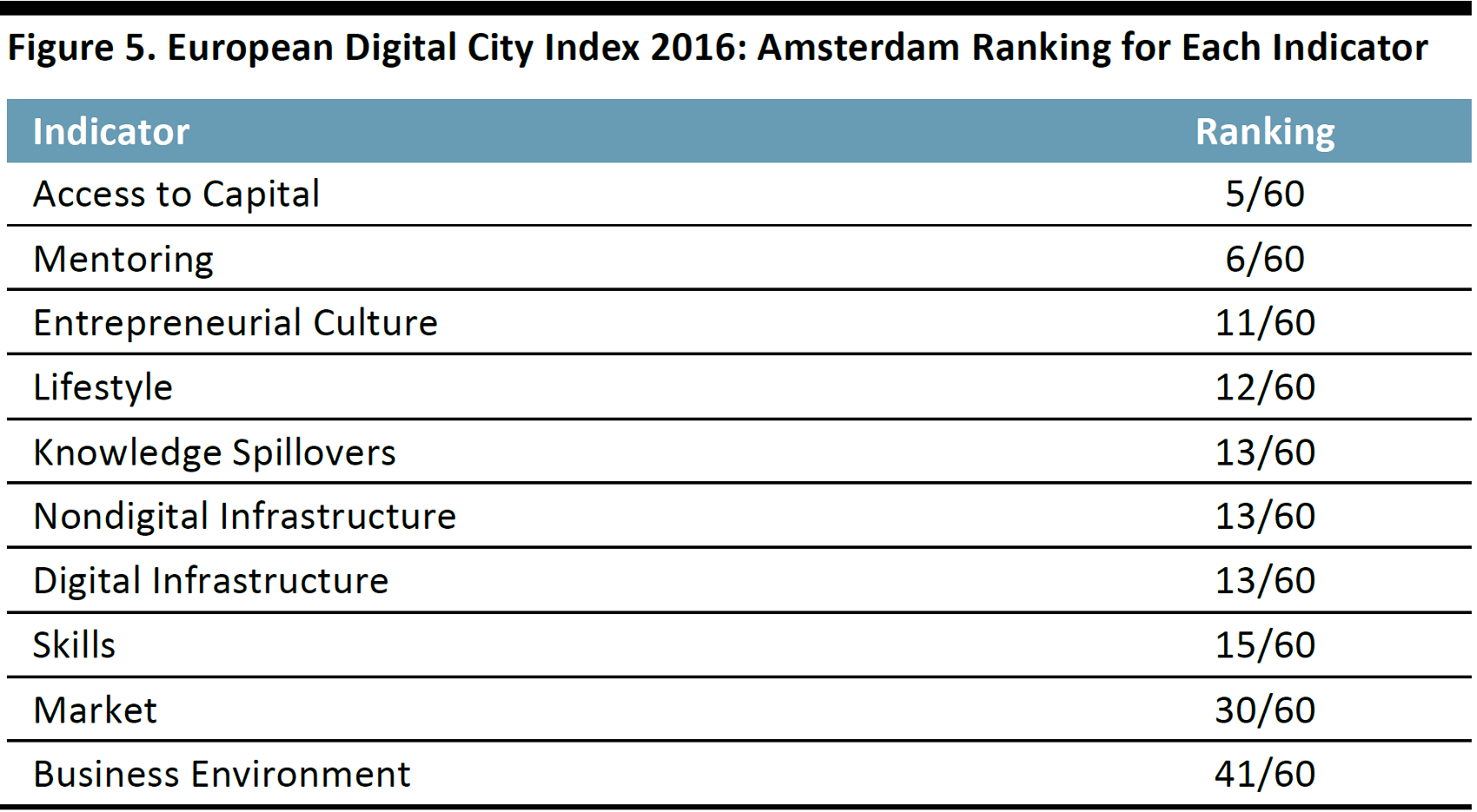
Ranking is out of 60, with 1/60 the best result and 60/60 the worst result.
Source: Nesta
Key Takeaways
Amsterdam is a leading startup hub globally and one of the top European centers for startup development. The city ranks 19th in Compass’s 2015 Global Startup Ecosystem Ranking and third in Nesta’s European Digital City Index 2016.
The city features a multicultural population and a business-friendly environment, along with easy access to mentors. The main factors that make Amsterdam one of the leading startup hubs include:
- Access to capital: Amsterdam-based tech startups have ample access to early-stage funding, crowdfunding and business angel funding.
- Mentoring and entrepreneurial culture: Amsterdam ranks high in Europe in terms of networking and mentoring events and access to accelerators.
- Market reach: The international orientation of Amsterdam-based startups facilitates their overseas reach.
One factor that drags on Amsterdam’s competitiveness as a startup hub is the relatively low average value of seed round funding for the city’s startups; seed round funding in Amsterdam is 21% lower than the European average and 88% lower than the Silicon Valley average.
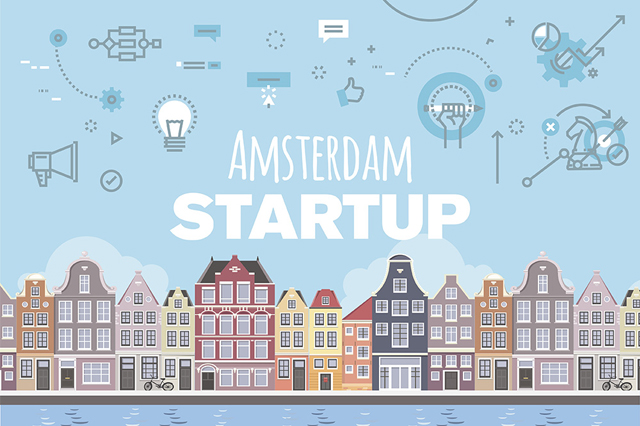
 Fashiolista is a platform that enables users to create a profile where they can save and share photos of fashion items and outfit ideas. Users can follow other users, including fashion bloggers and designers, for inspiration on new fashion ideas. The company was founded in 2010 and has grown to 1.3 million members in more than 160 countries. Fashiolista had raised €359,400 (US$500,000) in funding as of January 2011 (latest), according to Crunchbase.
Fashiolista is a platform that enables users to create a profile where they can save and share photos of fashion items and outfit ideas. Users can follow other users, including fashion bloggers and designers, for inspiration on new fashion ideas. The company was founded in 2010 and has grown to 1.3 million members in more than 160 countries. Fashiolista had raised €359,400 (US$500,000) in funding as of January 2011 (latest), according to Crunchbase.

 AliveShoes is a platform that enables people and companies to design, buy and sell shoes. Users can create their own shoe designs, choosing from more than 70 styles, 30 colors and a number of materials. The shoes are manufactured in Italy following the specifications outlined by the user. The company was founded in 2011 and had raised €768,060 (US$1.02 million) in funding as of June 2013 (latest), according to Crunchbase.
AliveShoes is a platform that enables people and companies to design, buy and sell shoes. Users can create their own shoe designs, choosing from more than 70 styles, 30 colors and a number of materials. The shoes are manufactured in Italy following the specifications outlined by the user. The company was founded in 2011 and had raised €768,060 (US$1.02 million) in funding as of June 2013 (latest), according to Crunchbase.


 Syndy is a platform that gives suppliers more control over their digital product content on retailers’ transactional websites. Suppliers can send customized product content to a retailer, update the content in realtime and communicate directly with the retailer. The company was founded in 2010 and had raised €1.1 million (US$1.5 million) in funding as of December 2014 (latest), according to Crunchbase.
Syndy is a platform that gives suppliers more control over their digital product content on retailers’ transactional websites. Suppliers can send customized product content to a retailer, update the content in realtime and communicate directly with the retailer. The company was founded in 2010 and had raised €1.1 million (US$1.5 million) in funding as of December 2014 (latest), according to Crunchbase.


 Monolith is a software service that enables retailers to visualize and analyze data collected from sensors installed in stores. The tool combines the store data with customer behavior and economic data to deliver insights. Monolith is used by retailers to improve management of staff and in-store stock, analyze visitor traffic, and better assess the impact of promotional campaigns, staff performance and other initiatives.
Monolith is a software service that enables retailers to visualize and analyze data collected from sensors installed in stores. The tool combines the store data with customer behavior and economic data to deliver insights. Monolith is used by retailers to improve management of staff and in-store stock, analyze visitor traffic, and better assess the impact of promotional campaigns, staff performance and other initiatives.

 12Return is a returns-management software service that enables retailers to better communicate with customers returning an item, keep them informed about the process and track the returns in the reverse supply chain. The company was founded in 2010 and had raised €582,878 (US$619,490) in funding as of January 2017 (latest), according to Crunchbase.
12Return is a returns-management software service that enables retailers to better communicate with customers returning an item, keep them informed about the process and track the returns in the reverse supply chain. The company was founded in 2010 and had raised €582,878 (US$619,490) in funding as of January 2017 (latest), according to Crunchbase.

 Roamler is an analytics platform that provides insights to brand managers on how their brands appear to customers in a retail environment. The insights are gathered by apps installed in smartphones used by “Roamlers,” who are consumers who act as mystery shoppers. Roamlers browse stores and gather information on a particular brand’s pricing, promotions, merchandise displays and product availability. The company was founded in 2011 and had raised €6.5 million (US$7.2 million) in funding as of April 2016 (latest), according to Crunchbase.
Roamler is an analytics platform that provides insights to brand managers on how their brands appear to customers in a retail environment. The insights are gathered by apps installed in smartphones used by “Roamlers,” who are consumers who act as mystery shoppers. Roamlers browse stores and gather information on a particular brand’s pricing, promotions, merchandise displays and product availability. The company was founded in 2011 and had raised €6.5 million (US$7.2 million) in funding as of April 2016 (latest), according to Crunchbase.

 Lokalinc is a marketplace that enables users to browse for selected gifts that are available from local stores in Amsterdam, Rotterdam and Den Haag. The company was founded in 2014 and had raised €270,510 (US$300,000) in funding as of December 2015 (latest), according to Crunchbase.
Lokalinc is a marketplace that enables users to browse for selected gifts that are available from local stores in Amsterdam, Rotterdam and Den Haag. The company was founded in 2014 and had raised €270,510 (US$300,000) in funding as of December 2015 (latest), according to Crunchbase.

 Spaaza is an analytics platform that helps retailers enhance their marketing programs by creating a unified profile of each customer. The software collects data about the customer journey across channels, including online, offline and social media. The company was founded in 2011.
Spaaza is an analytics platform that helps retailers enhance their marketing programs by creating a unified profile of each customer. The software collects data about the customer journey across channels, including online, offline and social media. The company was founded in 2011.

 Looks is an app that helps users make informed purchasing decisions by getting advice from real people.T he app functions as a retail marketplace and a style advisor: shoppers can ask for style suggestions from a personal style advisor and get the suggested look by purchasing the items directly through the app. The company was founded in 2015 and received an undisclosed round of seed funding in September 2015, according to Crunchbase.
Looks is an app that helps users make informed purchasing decisions by getting advice from real people.T he app functions as a retail marketplace and a style advisor: shoppers can ask for style suggestions from a personal style advisor and get the suggested look by purchasing the items directly through the app. The company was founded in 2015 and received an undisclosed round of seed funding in September 2015, according to Crunchbase.

 The Cloakroom is a platform through which men can shop for apparel online with the help of a style advisor. New customers answer a style quiz to inform their consultation with the stylist. The items selected by the stylist are sent to the customer to try on. If the customer is satisfied with the items, he can proceed to purchase them. If not, he can return them free of charge. The company was founded in 2013 and had raised €2.9 million (US$3.8 million) in funding as of May 2014 (latest), according to Crunchbase. In 2016, the company was acquired by Modomoto, a German company with a similar business model.
The Cloakroom is a platform through which men can shop for apparel online with the help of a style advisor. New customers answer a style quiz to inform their consultation with the stylist. The items selected by the stylist are sent to the customer to try on. If the customer is satisfied with the items, he can proceed to purchase them. If not, he can return them free of charge. The company was founded in 2013 and had raised €2.9 million (US$3.8 million) in funding as of May 2014 (latest), according to Crunchbase. In 2016, the company was acquired by Modomoto, a German company with a similar business model.


 Startupbootcamp E-Commerce
Startupbootcamp is one of the largest startup support organizations in the world. In Amsterdam, the organization runs three accelerators to support new companies focusing on solutions for smart cities and smart living, fintech and cybersecurity, and e-commerce.
Startupbootcamp E-Commerce provides support to startups that promise to innovate in e-commerce. Participating companies focus on authentication, virtual reality, marketing, omnichannel, e-commerce, contactless interaction, security, payment methods, logistics, social shopping and artificial intelligence.
Startupbootcamp E-Commerce
Startupbootcamp is one of the largest startup support organizations in the world. In Amsterdam, the organization runs three accelerators to support new companies focusing on solutions for smart cities and smart living, fintech and cybersecurity, and e-commerce.
Startupbootcamp E-Commerce provides support to startups that promise to innovate in e-commerce. Participating companies focus on authentication, virtual reality, marketing, omnichannel, e-commerce, contactless interaction, security, payment methods, logistics, social shopping and artificial intelligence.







